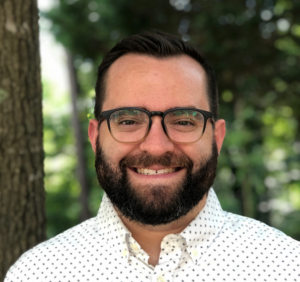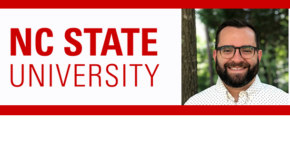 On This Student Spotlight: Having a diverse friend group can be an important part of college life.
On This Student Spotlight: Having a diverse friend group can be an important part of college life.
Kevin Singer, Ph.D student at North Carolina State University, examines why seeking out people with different beliefs can be a vital part of an education.
Kevin Singer is a PhD student in higher education and Research Associate for the Interfaith Diversity Experiences and Attitudes Longitudinal Survey (IDEALS) at North Carolina State University. IDEALS is conducted in partnership with Interfaith Youth Core and conducted by research teams at The Ohio State University and North Carolina State University led by Dr. Matthew Mayhew and Dr. Alyssa Rockenbach.
Friendships Matter for Higher Ed Students
How are close friendships across religious and non-religious differences affecting students? The Interfaith Diversity Experiences and Attitudes Longitudinal Survey (or IDEALS) followed students from over 120 colleges and universities through four years of college from 2015-2019 to find out.
Our research includes findings on 7,194 students who responded to the first two waves of IDEALS at the beginning and end of their first year in college. We discovered that close friendships across religious or nonreligious differences (or “interworldview friendships”) are very common when students enter college, and as students gain more of those friendships in college, they become more appreciative of all worldview groups and develop a more positive posture toward pluralism in society.
However, there was only a small increase in the number of close interworldview friends students had after one year. 37% of those students who came into college with no interworldview frienships continued to have none by the end of their first year. Educators can change this by creating the conditions on campus that allow interworldview friendships to form and thrive. Could student orientation, first-year experience, or residence life programs, for example, be adjusted to promote more interaction between students with different religious or nonreligious perspectives?
Educators could also set the expectation for students to form interworldview friendships during their collegiate career, and model the practice of building interworldview friendships themselves. Educators who enact values like empathy, compassion, and seeing the best in others will reinforce a culture of interfaith cooperation and inspire students to seriously pursue diverse social circles and friendships. In our polarized society, in which colleges and universities are no exception, it is critical that students are encouraged to pursue friendships with peers with beliefs they are prone to misunderstand.
